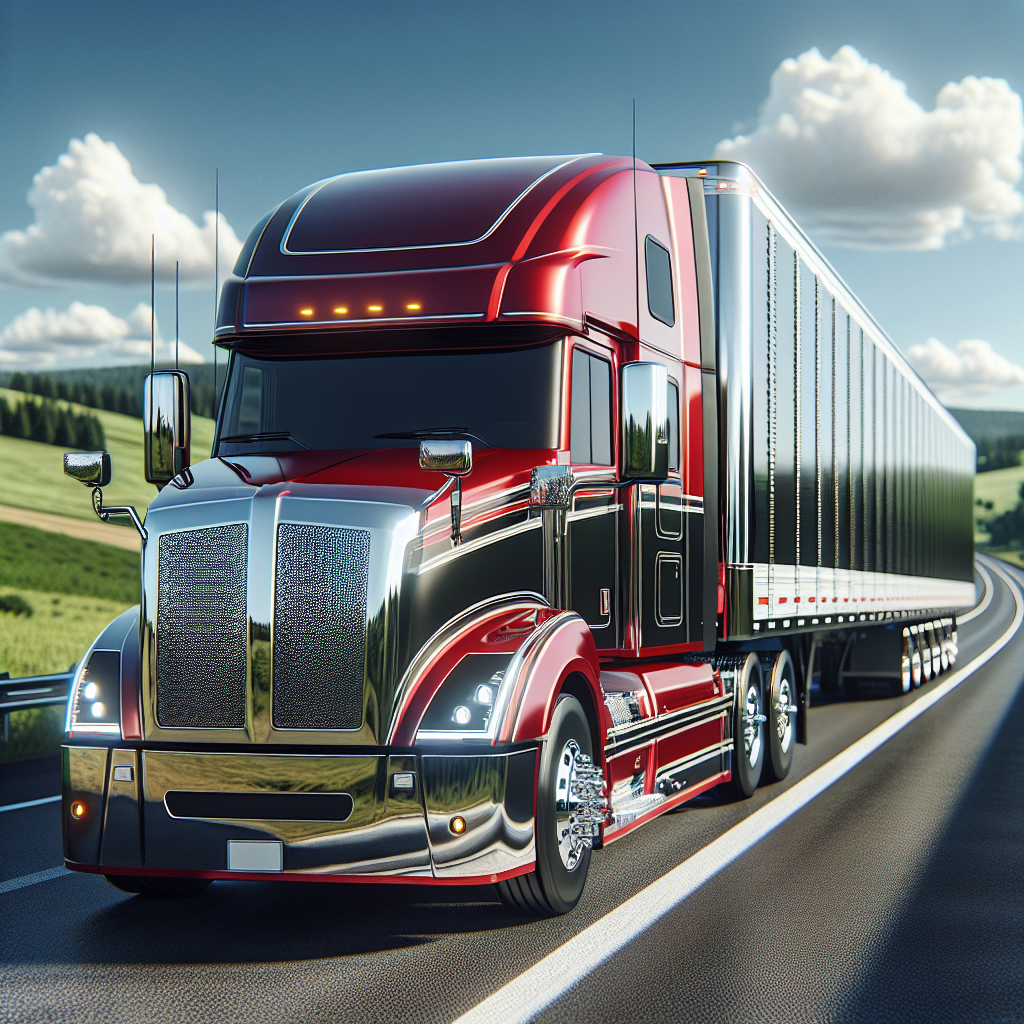

Ensuring the safety of your trailer is paramount for a successful and accident-free journey. Understanding the importance of trailer safety involves recognizing the risks associated with towing and the measures required to mitigate them. Every year, thousands of accidents occur due to trailer-related issues, often resulting in severe injuries and property damage.
The primary reasons to prioritize trailer safety include:
- Prevention of Accidents: Regularly checking and maintaining your trailer can significantly reduce the likelihood of accidents caused by mechanical failures.
- Legal Compliance: Many regions have specific regulations regarding trailer safety. Adhering to these laws not only keeps you safe but also protects you from legal repercussions.
- Peace of Mind: Knowing that your trailer is in optimal condition allows you to focus on the road, enhancing your overall driving experience.
Incorporating advanced technology can also enhance your trailer safety. For instance, using a trailer monitoring system can provide real-time data on axle temperature and tire conditions, enabling drivers to catch potential issues before they escalate. Tow with peace of mind, knowing that trailerwatchdog is standing guard.
Essential Pre-Trip Trailer Safety Checks

Before embarking on any journey with a trailer, performing essential pre-trip safety checks is crucial to ensure a safe and smooth experience. These checks help in identifying potential issues that could lead to accidents or breakdowns while on the road. Below are key areas to focus on during your pre-trip inspections:
- Tires: Inspect the tire pressure and tread depth. Ensure that all tires, including spares, are properly inflated and free from any visible damage.
- Lights: Check all trailer lights, including brake lights, turn signals, and running lights, to ensure they are functioning correctly. Visibility is vital for safety, especially during night-time driving.
- Brakes: Test the braking system to confirm that it is working efficiently. Ensure that the brake fluid is at the correct level and that there are no leaks.
- Hitch and Connections: Make sure the hitch is secure, and all connections are tight. Double-check safety chains and electrical connections for any signs of wear or damage.
- Load Distribution: Confirm that the load is distributed evenly across the trailer. This balance is crucial for maintaining control while towing.
Taking the time to conduct these checks can prevent costly repairs and enhance your safety on the road. A well-prepared trailer not only ensures compliance with regulations but also provides peace of mind during your travels.
Proper Loading Techniques for Safe Trailers
When it comes to towing a trailer, mastering proper loading techniques is essential for achieving optimal safety and stability. Incorrect loading can lead to various issues, including swaying, difficulty in braking, and even accidents. To ensure that your trailer is loaded safely, follow these guidelines:
- Distribute Weight Evenly: Start by placing heavier items low and towards the front of the trailer. This helps to keep the center of gravity low, enhancing stability during transit.
- Avoid Overloading: Always adhere to the manufacturer's weight limit for your trailer. Overloading can compromise handling and increase the risk of tire blowouts.
- Secure Your Load: Use straps, ropes, or nets to securely fasten all items within the trailer. This prevents shifting during transit, which can alter the trailer's balance and handling.
- Check Load Height: Ensure that the loaded trailer does not exceed height restrictions, especially when passing under bridges or overpasses. High loads can obstruct visibility and create hazards.
- Regularly Inspect Load: During long trips, stop periodically to check that the load remains secure and balanced. Adjust as necessary to maintain stability.
By implementing these proper loading techniques, you not only protect your cargo but also enhance your safety on the road. A well-loaded trailer is a crucial component of safe towing practices.
Protect your trailer
Best Practices for Towing Trailers Safely

Towing a trailer requires more than just attaching it to your vehicle; it demands a meticulous approach to ensure safety throughout your journey. Adhering to the best practices for towing trailers can significantly reduce the risk of accidents and mechanical failures. Here are essential practices to consider:
- Use the Right Vehicle: Ensure your vehicle is equipped to tow the specific weight of your trailer. Refer to the owner's manual for towing capacity and always choose a vehicle with sufficient power and braking capability.
- Check Connections: Before every trip, inspect the hitch connection, safety chains, and electrical connectors. These components should be secure and functioning correctly to prevent detachment or electrical failures.
- Adjust Mirrors: Properly adjust your mirrors to eliminate blind spots. This is crucial for monitoring traffic around you, especially when changing lanes or turning.
- Practice Smooth Driving: When towing, accelerate gently, brake early, and make gradual turns. Sudden movements can cause the trailer to sway, making it difficult to control.
- Maintain Safe Distances: Increase your following distance from other vehicles. Towing a trailer requires longer stopping distances, so allow ample space to react to sudden stops or emergencies.
- Observe Speed Limits: Be mindful of speed limits, especially those specifically posted for vehicles towing trailers. Higher speeds can lead to instability and increase the likelihood of accidents.
Incorporating these best practices into your towing routine will greatly enhance safety for you and other road users. Always remember that caution and preparation are key when handling a trailer.
Maintaining Trailer Safety During Travel

Once you're on the road, maintaining trailer safety during travel is paramount to ensure a smooth and incident-free journey. Continuous vigilance and regular checks can prevent potential hazards that may arise while towing. Here are several key strategies to keep in mind:
- Regularly Monitor Tire Pressure: Keep an eye on your trailer's tire pressure throughout your trip. Proper inflation is crucial for ensuring optimal handling and avoiding blowouts.
- Watch for Swaying: If your trailer begins to sway, remain calm and avoid overcorrecting. Gradually ease off the accelerator and steer straight until the swaying subsides.
- Take Breaks: Long drives can lead to fatigue. Schedule regular breaks to check your trailer, rest, and refocus. This will help you maintain alertness and ensure all systems are functioning well.
- Inspect Brakes: Pay close attention to your trailer’s braking system. Test the brakes periodically, especially after long descents, to ensure they are working effectively.
- Stay Aware of Weather Conditions: Weather can dramatically impact towing safety. Be cautious of high winds, rain, or snow, and adjust your driving accordingly. In severe conditions, it may be wise to delay travel.
- Secure Loads: Ensure that all cargo is secured properly and distributed evenly. A well-balanced load helps maintain stability and reduces the risk of swaying or tipping.
By actively maintaining your trailer's safety during travel, you can significantly reduce the chances of accidents and enjoy a safer experience on the road. Remember, vigilance is your best ally when towing!
Emergency Procedures for Trailer Incidents

Despite taking all necessary precautions, emergencies can still occur while towing a trailer. Understanding emergency procedures for trailer incidents is vital to ensure safety for you and your passengers. Here are essential steps to follow in case of an emergency:
- Stay Calm: The first step in any emergency is to remain calm. Panic can hinder your ability to think clearly and make sound decisions.
- Assess the Situation: Quickly evaluate the nature of the incident. Is it a tire blowout, brake failure, or something else? Understanding the problem will help you decide on the best course of action.
- Pull Over Safely: If possible, steer your vehicle to a safe location away from traffic, such as a shoulder or parking area. Turn on your hazard lights to alert other drivers.
- Check for Injuries: Ensure that all passengers are unharmed. If anyone is injured, call emergency services immediately.
- Use Warning Devices: If you have flares or reflective triangles, set them up to warn oncoming traffic, especially if you are on the roadside.
- Contact Roadside Assistance: If the situation requires professional help, contact a roadside assistance service. Make sure to provide detailed information about your location and the nature of the incident.
Being prepared for emergencies can make a significant difference in managing trailer incidents effectively. Remember, you can tow with peace of mind, knowing that trailerwatchdog is standing guard to prevent catastrophic failures and enhance your safety on the road.




